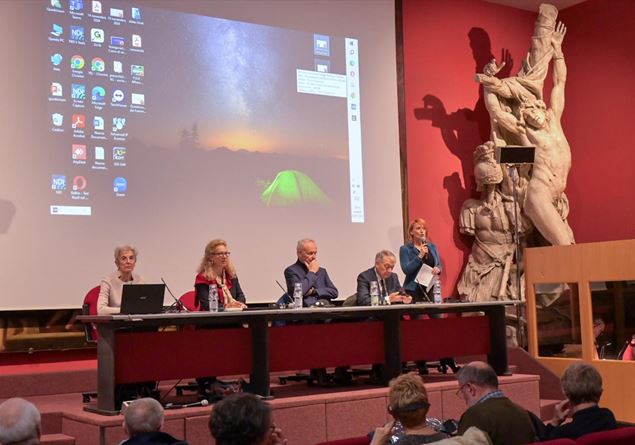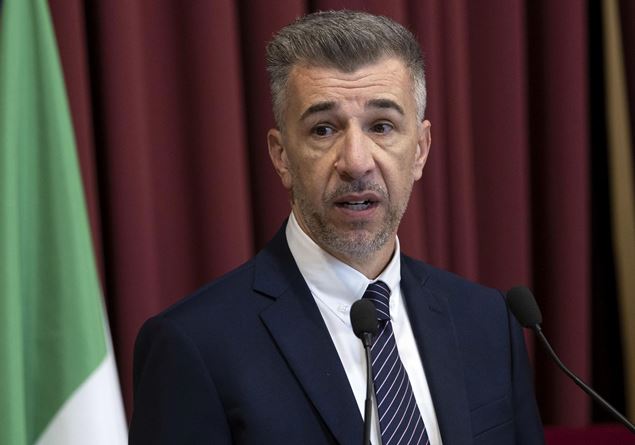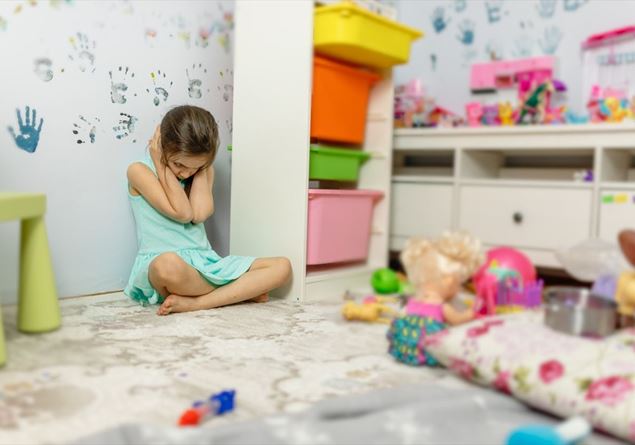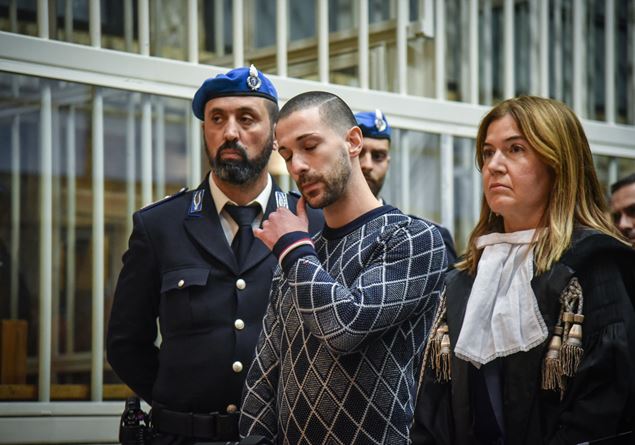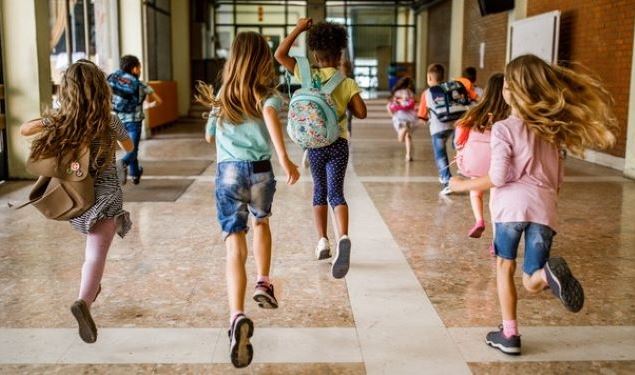
On September 12th, for most people, the first bell of the 2024 school year ringsin Bolzano it starts on the 5th, other Regions postpone to the 16th, but we are almost there. A ritual, an effort, an adventure, perhaps even a pleasure to meet again that like few things unites Italy from 6 to 16 years with the slightly older corollary, but certainly not small and even less secondary, of about a million teachers and an unspecified number of parents. Enrico Galiano, a teacher and writer, will also be among the students. Since 2023 he has been teaching Italian, history and geography at the middle school of the comprehensive institute of Chions (Pordenone). We asked him to welcome those who come to the classroom for the first time and those who return, and to tell us what feelings they will have when they start again.starting from his pointed post on uncovered chairs and his new upcoming book, dedicated to errors.
Professor Galiano, the bell is near, with what spirit do you start again?
“With a spirit of resistance, in the sense that school should be the last bastion of resistance to a world that is going in directions I don’t like, we still discuss Ius scholae today, but for us at school the problem has been overcome for years: for years we have understood that the “foreigner” is a resource not a problem. I would like all those who are fascinated by the theme “Italians first” to come and spend a morning at school with us. In five minutes they would change their minds, because they would realize that among us integration is a consolidated and shared practice. We are a place of resistance because it is the kids who dictate the agenda, who force us to talk about gender differences, about the environment. This is the spirit.”
Is it true that school, in a world where the stadium curve prevails in the debate, is a place where we try to preserve complexity, perhaps one of the few remaining?
“In my opinion, yes, because by its nature it is based on discussion. It is no longer the school of the nineteenth century in which the teacher transmitted the truth: the frontal lesson is only a very small part of learning that today is more “maieutic” than in the past. Cultivating complexity in the classroom is a necessity and an instinctive fact.”
A few days ago you made a provocative reflection on vacant chairs, noting that school starts again without a quota of holders on vacant chairs, perhaps because a precarious worker costs less. What would you suggest to those, students and parents, who start without stability?
“I would advise not to get too attached to precarious teachers, but mine is a provocation because getting attached is not something you can control. More seriously, they are the recipients of a wound for which they are not to blame, so I would tell them: make your voice heard, protest. Also because the kids suffer from having a teacher in their class who then changes. I, who experienced it when I was precarious, can say that teaching in these conditions is also very emotionally trying.”
Is it difficult for the incoming teacher too?
“You’re at a disadvantage if the person leaving the chair to you is a teacher who has been able to make himself appreciated.”
Every now and then the criteria for recruiting teachers change, which further complicates a very old problem, because it creates conflicts between different precarious positions that need to be resolved. Will we ever get out of this?
“To get out of this mess, we should revolutionize this recruitment that is still based on scores, seniority, past competitions: even today, what allows you to pass a competition is not your real skills in class, because the tests are still strongly focused on knowledge. You are evaluated in the abstract not for how you teach, but for how you say you would like to teach. You present a lesson in front of a commission, but it’s not like being in class, and it’s a bit like hiring a soccer player for how he dribbles rather than how he plays in a match.”
It is now too late to fix it, we are at the end: it is time to go back to class. What attitude would you like from colleagues and parents?
“It would be nice if we all remembered that we have to navigate in the same direction and it would be nice if we teachers and parents made peace a little, because for a few years we have been at war and it’s not good (this is the theme of the in-depth article at the beginning of the year on newsstands in FC 36, ed.). The only way to do it is to remember that we have the same goal: to raise healthy and strong children. So if you are a parent, remember that a strict teacher is a great fortune because he or she gives your child the tools to grow. If you are a teacher, don’t forget that when a parent is so present, it is because parenthood today has changed compared to 30 years ago and has a much stronger responsibility with respect to the successes and failures of the child. Maybe if we both managed to put ourselves in the other’s point of view, it would be easier for us to row in the same direction.”
Now that we know the spirit with which you will begin, can you tell us what you would like to encounter in the classes you will see for the first time or that you will find again?
“I would like them to put me in difficulty, to force me to reconsider my certainties. For me, the best students are those who are able to do their job as adolescents, to have a critical attitude towards authority, always with respect.”
Teaching is an individual sport in the classroom and a team sport in the school. How do you best reconcile these two components?
“For me there is no better teacher than the one who puts the good of the kids first, who manages to bring out the best in the kids and this can only happen if you collaborate. I say this to myself too, because it is not always easy to find common ground, but the matter is so complex that you can only do it through the collaboration you give and receive.”
Sometimes, there is a sense of distrust among teachers: they fear they cannot make an impact in a world where the Internet offers competition from different and “simple” models. Has it become more difficult to do your job?
“Yes, there are many more alternatives, because on the one hand there is the temptation to follow the siren song that brings the temptation to simplify – and this is wrong -, on the other hand I believe that all these offers can also be seen as a resource: I learn from the way in which many good popularizers who are successful on the Internet position themselves. From them I learn some techniques that I can apply in class. You have to be careful: not to fall into simplification but also to have the attitude of someone who always wants to learn”.
Speaking of learning, he’s about to come out with the book The incredible adventure of a super-mistake (Salani). The school of the past made a scarecrow of it, Rodari taught us that mistakes are useful for learning. How do you see it?
«I think of Rodari as a teacher for me. Mistakes should never be seen as failures, because they are always progress: when I make a mistake I understand what I shouldn’t do, mistakes bring me closer to the truth, they don’t take me away from it. The protagonist of the book The incredible adventure of a super-mistake he’s a kid who gets a superhero costume, but his superpower is making mistakes. He’ll gradually understand that only through mistakes can you make discoveries.”
From what age can it be read?
“I think of it on several levels: the first is that it is a story for kids from 8 to 13, but then there is a second that is good for all ages. Because when the kid has to face the “sect of the perfect” an adult understands that perfectionism is the disease of our time, of our performance society, which throws into a sense of inadequacy those who do not keep up. On this second level we look for the antidote: making peace with our own fallibility.”
Would you mind sending a welcome message to the kids returning to class?
“I hope it’s not easy this year. That you have difficulties, obstacles. That you hurt yourself a little, in short. That you touch life with your hand. Because that’s the only way to overcome the fear of living: by hurting yourself, and then discovering that you can heal. By falling, and discovering that you can get up again.”




